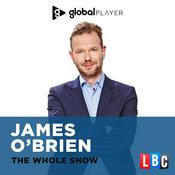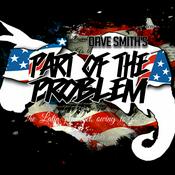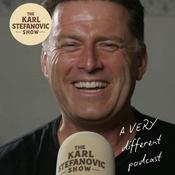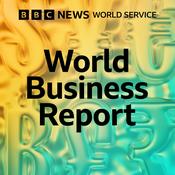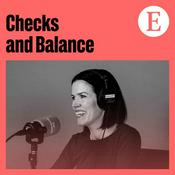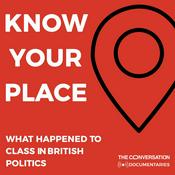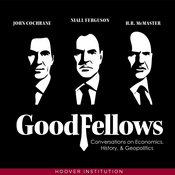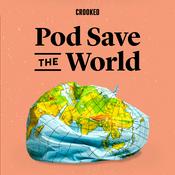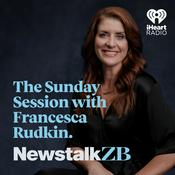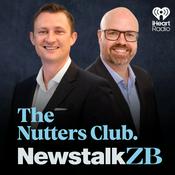1867 episodes
- We thought we'd start with the housing densification or de-densification that was announced yesterday. We didn't really get a chance to talk about it despite the fact that yesterday when the Prime Minister was in for an hour, he gave us a bit of an announcement of an announcement.
“Long story short is what Chris will announce is a significant reduction in the capacity, which means that then actually that pressure of intensifying our suburbs in Auckland goes away. And what we want to see is intensification happening in the right places. Over the CBD, the transport hubs, the town centres, we should be densifying and putting more intensification. So where would the density occur? Should occur in the CBD, in the town centres, in the transport hubs that we've got across the across Auckland City, but not in the suburbs.”
Didn't have to wait very long for the actual announcement, because a few hours later, Housing Minister Chris Bishop announced sweeping changes to housing densification in Auckland, with dwelling capacity being slashed from 2 million homes to 1.6 million. The housing intensification will still go ahead near transport hubs, rail corridors, and the CBD. Chris Bishop said yesterday that the 2 million housing figure had become a red herring that transformed into a lightning rod. Basically, people felt that 2 million houses would be put up right next door to them. That was the kind of irrational thinking behind it. There were concerns about who would be there, what sort of housing developments would go there, where people would shop, how people would get to work, where people would go to school. They were legitimate concerns, but there was, I agree with Chris Bishop, that 2 million suddenly became 2 million people will be next door to me. And he said the changes made yesterday were a response to public feedback. Hamish Firth, who you will have heard on this show before, who is most excellent, who is an urban planner, who was stolen by the Mike Hosking Breakfast this morning, said the changes announced by the Minister yesterday made sense.
“What we've got to be very careful when you suddenly throw 2 million out there is you create paper capacity, but you're going to create community backlash, you're going to create land value distortion, and you're probably not going to create any extra homes, especially against the backdrop of what was a very well written Auckland Unitary Plan. At the end of the day, targets don't build houses, infrastructure and feasibility do. And what you'll find right now is a lot of high rise buildings are very expensive to build, and they only get built, as you're starting to see, in very high end areas where the developer can achieve a very high end outcome. So just because you can build to 50 doesn't mean many of these sites will or may, and I think that some thought has to go into that.”
Does this allay the fears you might have had about intensification of housing? Does the fact that the Government has listened show a government that is concerned and understands and appreciates the fears of well, many around the country, because what happens in Auckland quite often filters through to the rest of the country? That by being willing to listen, that shows, you know, a reasonable kind of a government. Labour was shouting about a u-turn and they've got it all wrong and they've had to backpedal. But a couple of texters yesterday, because I said to the Prime Minister yesterday, this just looks like you're looking after the voters in the leafy suburbs. And a couple of people from the leafy suburbs said it makes no sense to put people in areas where there is no transport hub, where there are no schools. And I think that's a perfectly valid point and I accept that. And when the PM said yesterday that you could pop up housing developments, you know, put 100 homes into an area without having to provide for transport, without having to provide for schools, there was no thought to it, you could just sell off the land and the council'd say, “Yeah, sure, you can turn that into a development," – that doesn't make sense either. There's got to be planning and forethought when you are putting in new homes. That's what will create a thriving community. Putting it around the transport hubs, great. Putting it in the CBD and the and the suburbs closest to the CBD, great. Watch new communities develop.
Does that allay the fears that people had now? First home buyers, there have never been more of them right now, and that's pleasing. We never want to see the kind of rorting and speculation that we saw with housing prices, and an increase in supply will help mitigate that. And we don't want to see people stranded in the middle of nowhere in housing developments that have put a roof over their head but precious little else. So love to hear from you on this, especially if you had concerns at the time. Does this kind of tinkering with the plan, this kind of revisiting of the plan, is that a tick for the government to say, Okay, you took the feedback on, you listened," and does this make you perhaps less fearful of what housing intensification is going to look like, what providing homes for future New Zealanders looks like in the future.
See omnystudio.com/listener for privacy information. - An unprecedented day continues for the UK, with Andrew Mountbatten-Windsor released under investigation after his arrest overnight.
The former Prince has been pictured leaving a Norfolk police station following allegations he shared sensitive information with late sex-offender Jeffrey Epstein.
Searches have taken place at addresses in Berkshire and Norfolk.
His brother King Charles has stressed the law must take its course.
UK Correspondent Gavin Grey told Kerre Woodham Mountbatten-Windsor is maintaining his complete innocence, despite this being only one of a number of police investigations around him.
LISTEN ABOVE
See omnystudio.com/listener for privacy information. - The Official Cash Rate has been left unchanged, 2.25%, expected by all the commentators, but perhaps less expected was a dovish view of the future. It was the new Reserve Bank Governor's, well she's not that new I suppose, the newish Reserve Bank Governor's first OCR review, having come on board at the end of '25. She is pretty optimistic about the economy. She said it will continue to recover, but she understands that many households are not feeling it yet. Must be rather annoying being told, no, everything's fine, everything's turning around, everything's great, while you're looking down the back of the couch for coins to get the kids' school lunches.
But there are great numbers coming out of our primary industry sector and thank God for you. Just take a moment on your tractor, in your shed, on the motorbike, in the fields, just take a little moment to have a big deep breath and consider yourself congratulated and thanked. Kiwifruit, dairy, sheep, beef, yet again that sector, our primary industry sector, is doing the heavy lifting to keep the engine of the economy running. How many times? And we should point out, you were doing it with one hand and one leg tied behind your back for much of the past decade. So thank you again for keeping us going, producing stuff that the rest of the world wants.
However, we can't depend on you, we shouldn't be as reliant upon you as we all are. Trends change, markets change, you know, all of a sudden, the world will decide that, oh I don't know, refined sugar is the way to go, not protein, and all of a sudden, the world will change. Unlikely to go for refined sugar, but you know what I mean. You're also vulnerable to climate, you know, a good season needs good weather. You're vulnerable to external markets. To a certain extent you are not the author of your own fortune, you are very dependent on outside and external sources. And if you're dependent on that, so too are we. We need to find other strands, other sectors to build up. You know, technology would be ideal and we've made some great marks in that, bioscience, fantastic, but not houses.
Let's not look at an unproductive sector of the economy to provide us with wealth again. House prices have come back a little in the North Island, Auckland's average asking price is once again over a million dollars, and you should see the tat you get for that. That's up 9% from December. Tale of two islands: Christchurch, Queenstown, Otago, Southland, all seen significant increases in prices. But the “drop in value” has seen a drop in confidence. Reserve Bank's Paul Conway says the reduced prominence of the wealth effect from higher house prices is a risk to the economic recovery. It's a big change, he says, for the New Zealand economy to not have that increase in house prices as a kicker to aggregate demand. He says there may well have been structural changes in the housing market that means an increase in demand for housing no longer equates with higher house prices.
And it's true, for a couple of decades Kiwi property owners have been living off the wealth of their main asset. There were astronomical rises in the value of homes around the country and people felt wealthy and spent like they were wealthy. A chronic undersupply of homes, high migration, low interest rates saw huge rises in the value of homes around the country and so people spent like they were rich. All of a sudden, a home became far more than a place you lived in, it was an asset with equity which you could use to springboard yourself into wealth, as so many of the ads that we ran on this station told you. People spent like drunken sailors and the economy boomed. Fast track to the post Covid slump and people have seen their house prices drop – in some horrible cases they owe more on their house than they can sell it for. And as Paul Conway says, there may well have been structural changes to the housing market. High prices for the essentials means there's less disposable income in households and if one of you has been made redundant, it has been a tough few years. We've lost our groove. But as Reserve Bank Governor Dr. Anne Bremen told Mike Hosking this morning, there's enormous potential in the New Zealand economy and there are reasons to be optimistic.
“I think it's a great economy. I think New Zealanders are underestimating actually the potential going forward in the New Zealand economy. We're already seeing some sectors doing really well, agriculture, manufacturing is starting going, and I do expect this to broaden in this year. So I'm very positive. We actually think there's quite a lot of what we call spare capacity in the economy, so we think that the economy can grow at a higher pace without causing so much inflationary pressure because there is still high unemployment, firms can increase, you know, manufacturing without having, they're starting to invest actually, which is also really good to see. So we do think there is spare capacity. And I know people, there is a lot of good potential in this economy. People should be a bit more optimistic.”
There you go. So many people are telling us to be optimistic. We must be optimistic. We're all going to be optimistic, we're going to stay after class until we're all optimistic. Okay, I mean, a little bit hard when you've got the, you know, the infrastructure plan coming out yesterday which said that pretty much we need so much and we can't afford it. But there is room to grow in the economy as Dr. Bremen said, and as people know. But if you're not feeling it, you're not going to be spending.
Back in the day when we were using our houses as ATMs, I mean I was one of them, we bought a house in Grey Lynn because it was the only place we could afford. I think it was about $250,000 —might have been closer to $300,000— which seemed a fortune at the time, but then the house price just went up and up and up so you could afford to do the renos. We could take it from an uninsulated place where the floorboards were open to the bare dirt floor underneath, as it had been since 1890. You could do the renos, you could do the landscaping of the garden, you were spending and New Zealand businesses were the ones who benefited from that.
So if you're not doing that, where are the sustainable businesses going to get their work? If people don't feel confident enough about improving their homes or, you know, using the money that they've built up in their homes, how do you replace that quite significant chunk of money go round? Do you feel confident? Do you feel optimistic? Can you see light at the end of the tunnel?
See omnystudio.com/listener for privacy information. Christopher Luxon: Prime Minister takes talkback, discusses infrastructure, housing intensification, polls
18/2/2026 | 33 mins.The Government will today reveal its back down on controversial Auckland housing intensification plans amid fierce public criticism.
New planning rules would currently allow another 2 million homes in Auckland.
But last month the Government announced it'll water down the rules with an announcement expected this afternoon.
Prime Minister Christopher Luxon told Kerre Woodham a balance needs to be struck.
He says Auckland has to grow with affordable housing, but quite rightly some Aucklanders have said they don't want big buildings next to their homes.
He’s also allaying concerns about a proposal for a $9 toll on Auckland's Harbour Bridge.
The Infrastructure Commission recommended tolling the existing bridge, and second new crossing, to reduce construction costs on the Crown.
But Luxon told Woodham it's only an idea.
He says the Government hasn't decided whether it'll be a new bridge or a tunnel yet, and decisions on how to fund it will come later.
He says tolls are the only way to pull forward the development of new roads, faster.
LISTEN ABOVE
See omnystudio.com/listener for privacy information.- The National Infrastructure Plan was released yesterday, and it makes for grim reading. I don't think anyone expected good news, but nonetheless a cold hard dose of reality is always unwelcome, especially when you've been wilfully ignoring the obvious for years. The plan looks at 17 sectors covering central government, local authorities, and commercially regulated utilities, and lays out a 30 year outline looking at how New Zealand can improve the way it plans, funds, maintains, and delivers infrastructure. So far, so very grown up, but really this is something that should have been done 30 years ago because in a nutshell, we have a huge infrastructure deficit. We need hospitals, we need roads, we need bridges, we need alternatives, we need cycleways, we need sewage, we need water pipes, we need electricity, we need alternative electricity, huge infrastructure deficit across all of the sectors.
But even if we had billions of dollars, which we don't, throwing money at the problem doesn't seem to be the only answer, because we are very, very poor at getting bang for our buck as was highlighted in the plan. Over the last 20 years, New Zealand has averaged spending about 5.8% of its GDP on infrastructure, which is one of the highest rates of spending in the OECD. Yet we rank near the bottom of the OECD in terms of efficiency of spend and we came fourth to last in terms of asset management. So we spend all this money, get very little for it, and then don't look after it when we have it. I mean look at Moa Point – it's a brilliant example of what happens when you do not spend money on the boring stuff like maintenance and upkeep. The whole country is basically a Moa Point waiting to happen.
The plan recommended that 60 cents of every dollar of infrastructure spend should be allocated to renewals and maintenance. A key theme of the plan was that governments have tended to underfund maintenance. That funding's routinely deferred in favour of the “new and shiny”, to quote the authors of the plan. It's like looking at your house and thinking, God, that plumbing needs fixing, that pipe's looking a bit iffy, we really need to paint the house because those weatherboards are going to get rotten otherwise. Oh boring, let's take the kids to Fiji. That's pretty much what we've been doing as a country for far too long. And it's not just one government, it's successive governments, National and Labour, who have let us down. And they've let us down because we have let them let us down. We don't want to hear the news either. Voters are as much to blame as the governments because we don't want to hear the hard messages. The plan says we cannot afford to have everything we want and in fact need as a country and the infrastructure jobs that we do need to do will have to pay for beyond our general taxes.
“The reality is asking people to pay for things is difficult and we've pushed the boat out quite a bit as a government on tolling and that's because ultimately roads have to be paid for. And we've tried to move the system towards more of a user pays model and we think that's fair. The original Harbour Bridge in Auckland was of course paid for with a toll and we've just signalled quite clearly that when you're dropping billions and billions of dollars, which is what the second harbour crossing will be, it will be the biggest infrastructure project ever built in New Zealand, that's a project where we do think it will end up being tolled because that's a fair way of paying for the project.
“Here's the reality, roads and in fact all infrastructure has to be paid for. It has to be and you can use user charges for that through tolling or through petrol tax or a combination of both, which is essentially what we do. You can borrow for that, but of course that has to be paid for too. Money is not, despite what the Labour Party think, debt is not free. We already have a huge amount of debt that was built up during the Covid years that has to be repaid and we are desperately as a government getting the books back in order so that when the next shock comes along, the next Cyclone Gabrielle or whatever, we're in a position where we could actually deal with it. At the moment of course we're in a very vulnerable situation and the Treasury says we've got to keep the debt levels under control, otherwise our international borrowing costs will go up and then everybody's interest rates will go up and then you're in banana republic territory. Then you can't even meet the debt repayments on what you've already borrowed.”
That was Minister for Infrastructure Chris Bishop talking to Mike Hosking this morning. So it's grim reading. As I say, successive governments are at fault and so are we voters. We want everything done for us and we want the government to pay for it. We don't want to pay more in tax though when we want the government to pay for it. We want all the benefits our great grandparents had in the 60s without being willing to pay the sort of tax they were paying in the 60s. We have to wake up and be willing to vote for governments that are going to make tough decisions. And to help us do that, National and Labour need to join forces, get together and agree on the tough stuff. That the age of universal Super needs to go up, allowing for people to collect less early, sure, when you've got the tough jobs, but you know, we can dither around this but ultimately that's what needs to happen. We need to agree on an infrastructure program that will involve maintenance and building and won't be subject to the whims of politics. We're going to need to see more governance, less politicking. We need that to start this election, otherwise the main parties will be fighting it out to govern a country that isn't worth living in.
See omnystudio.com/listener for privacy information.
More News podcasts
Trending News podcasts
About Kerre Woodham Mornings Podcast
Join Kerre Woodham one of New Zealand’s best loved personalities as she dishes up a bold, sharp and energetic show Monday to Friday 9am-12md on Newstalk ZB. News, opinion, analysis, lifestyle and entertainment – we’ve got your morning listening covered.
Podcast websiteListen to Kerre Woodham Mornings Podcast, Heather du Plessis-Allan Drive and many other podcasts from around the world with the radio.net app

Get the free radio.net app
- Stations and podcasts to bookmark
- Stream via Wi-Fi or Bluetooth
- Supports Carplay & Android Auto
- Many other app features
Get the free radio.net app
- Stations and podcasts to bookmark
- Stream via Wi-Fi or Bluetooth
- Supports Carplay & Android Auto
- Many other app features


Kerre Woodham Mornings Podcast
Scan code,
download the app,
start listening.
download the app,
start listening.












